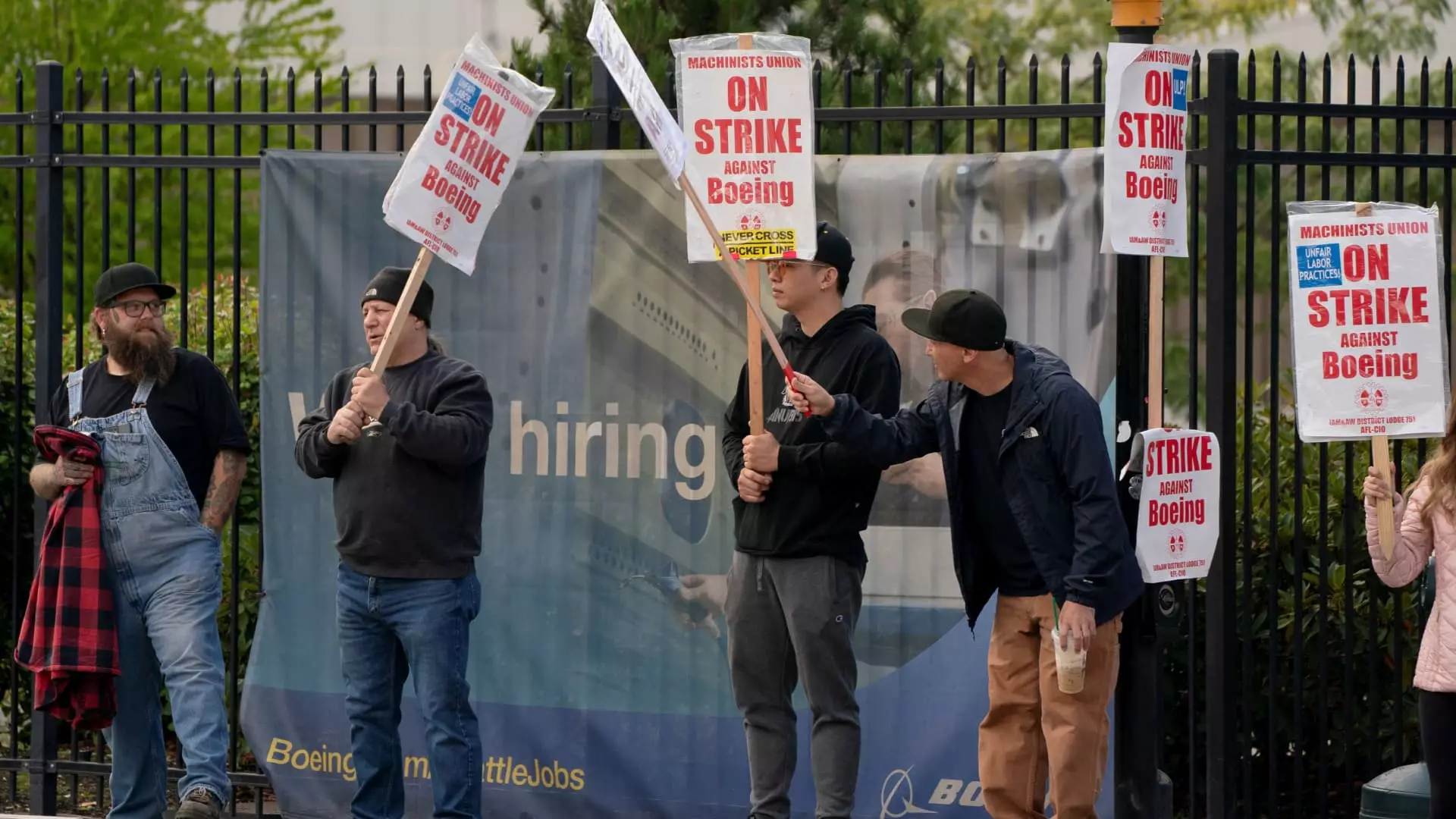Boeing, a leading aerospace manufacturer, finds itself amidst a financial storm as it grapples with a significant strike by its workforce. More than 30,000 factory workers, predominantly based in the Seattle region, initiated a walkout last Friday after rejecting a proposed labor agreement. This industrial action has led to an immediate halt in the production of Boeing’s aircraft, a move that has sent ripples through the entire aerospace supply chain.
In response to the strike, Boeing has announced substantial cost-cutting measures aimed at preserving cash flow and alleviating financial strain. Among these actions are a hiring freeze, restrictions on nonessential travel for employees, and a notable reduction in spending with suppliers. Chief Financial Officer Brian West communicated these strategies in a memo to staff, emphasizing the need for the company to adapt quickly to the unfolding situation. Notably, Boeing will halt most purchase orders for key aircraft models, including the 737 Max, 767, and 777, further underscoring the gravity of the crisis. These reductions will inevitably affect numerous suppliers that depend on Boeing for their livelihoods.
The strike poses a significant threat to Boeing’s ongoing recovery efforts, following a year characterized by production lags and quality control issues. West’s message highlighted the precarious nature of the current business landscape, stating that the strike jeopardizes not only the company’s immediate operations but also its broader financial health. Boeing’s commitment to returning to the bargaining table reflects an urgency to resolve the labor dispute, yet the specter of a prolonged strike looms large, raising concerns about the manufacturer’s ability to sustain its workforce and production levels.
The ramifications of the strike extend beyond operational disruptions; they also raise red flags regarding Boeing’s financial standing. Credit rating agencies, including Moody’s and Fitch, have placed Boeing’s ratings under review. A sustained strike could lead to a downgrade, jeopardizing Boeing’s ability to secure future financing at favorable rates. This scenario is particularly concerning given Boeing’s pre-existing debt burdens. In the first half of the year alone, the company reported an alarming $8 billion loss, largely attributed to production delays stemming from a serious incident involving a door-panel malfunction.
Boeing’s current plight is a cautionary tale of the complexities involved in balancing labor relations with financial performance. As the company navigates this challenging landscape, the ability to resume operations and restore employee relations will be crucial. With potential furloughs on the horizon for many employees and executives, the stakes are higher than ever. The path toward recovery will require adept crisis management and a renewed commitment to engaging with the workforce effectively. Understanding the broader implications of these internal challenges will be essential for Boeing as it seeks to reassure stakeholders and regain momentum in a highly competitive market.

